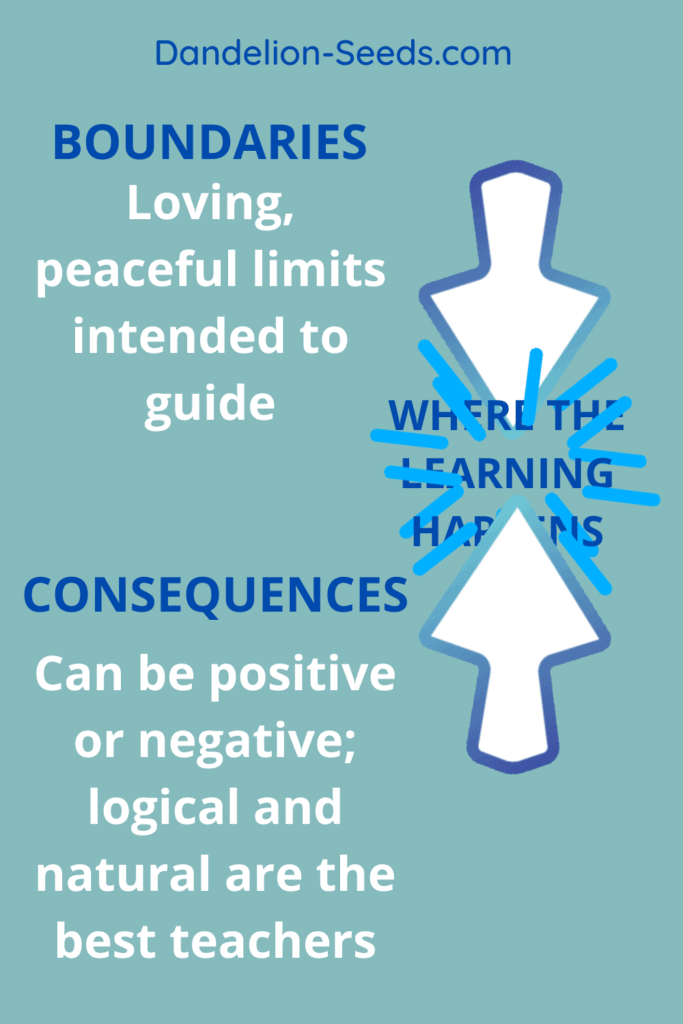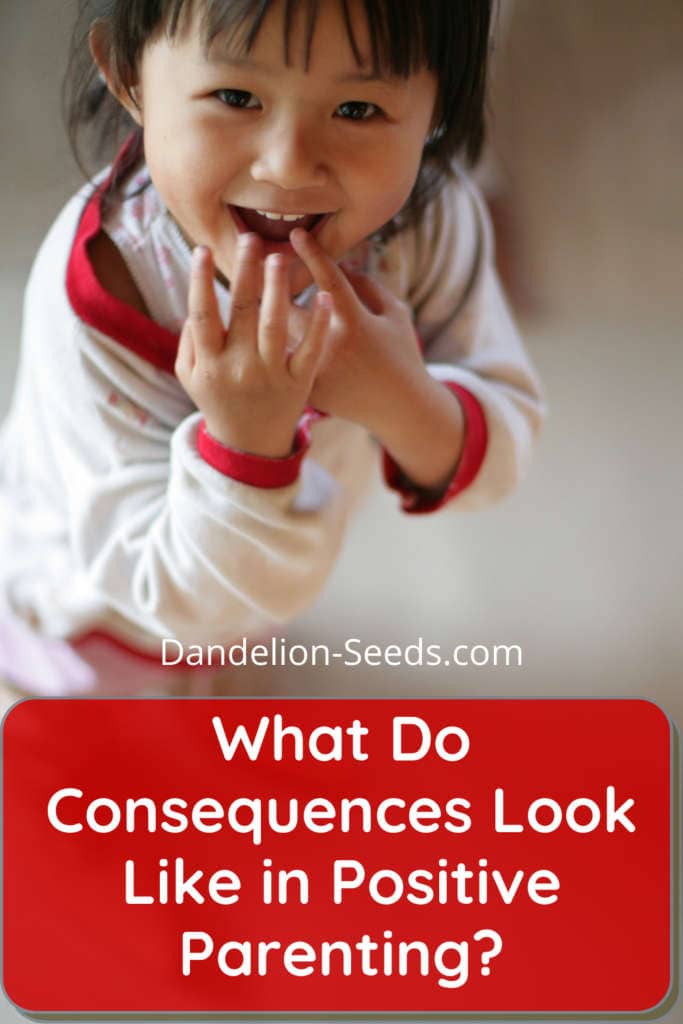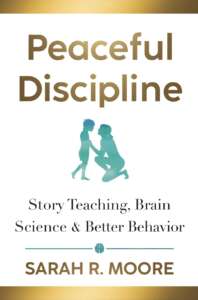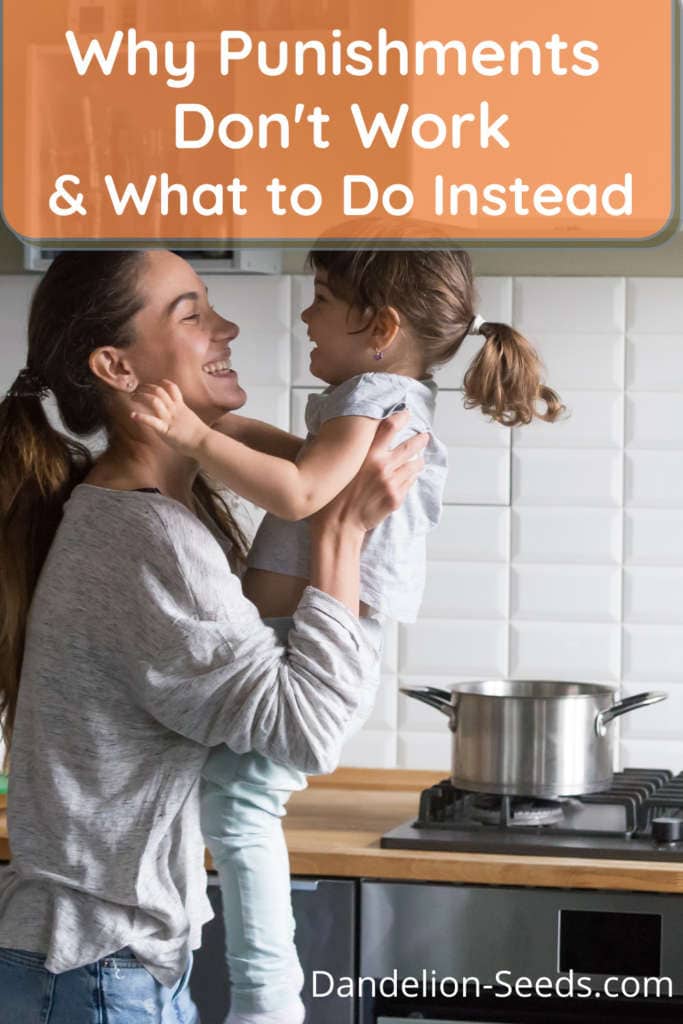
Sign in
Don't have an account with us? Sign up using the form below and get some free bonuses!

Please allow me to be blunt: sometimes children drive their parents batty. Of course, sometimes parents drive their children "'round the bend," too -- so all is fair in love and parenting. What should parents do, though, when their kids' batty-making behavior requires a response of some sort, and they want to address their children using non-punitive, positive discipline?
The solution often rests in natural and logical consequences.
What natural consequences and logical consequences have in common is that they peacefully teach children their so-called life lessons. That's the essence of peaceful discipline: teaching that does no harm.
When used correctly, natural and logical consequences are valuable teaching tools. Examples of both are below.
An important distinction to make, of course, is to know that both natural and logical consequences are different from boundaries. Ideally, boundaries are the loving and fair guidelines that grown-ups establish to help ensure their children's safety, health, and social-emotional growth.
Natural and logical consequences are not punishments; they're simply the effects of choices. Think of consequences as non-punitive teachers.
Consequences can be positive or negative. For example, the consequence of a child treating a sibling well is usually a peaceful relationship. The consequence of a child mistreating a sibling is usually conflict.
Related mini-course: Setting and Enforcing Healthy Boundaries for Kids; Related expert interview: Dr. Laura Markham of Aha! Parenting Discusses Sibling Rivalry

The place where boundaries and consequences meet is often where learning happens best.
Example: A child says he "doesn't care" that he's left his favorite toy truck outside in the driveway. The parent warns the child that the toy might break or be stolen if he leaves it there overnight. Still, the child refuses to retrieve it.
Sure enough, the next morning, the parent backs out of the garage to take the child to school and has completely forgotten about the toy truck. The car rolls over the truck and they hear the dreaded "crunch."
The natural consequence is that no one can fix the truck and the child is sad.
The broken truck and the sadness of the child are enough of a teacher that the child doesn't need further punishment for having left the truck outside. The natural consequence here is enough.
Likely result: Next time, when the adult says to the child, "Please move your toys off the driveway," the child will be more inclined to remember the broken truck and consider his options more carefully. If he chooses to move his toys, that will likely result in a positive natural consequence, instead -- nothing breaks. He'll learn greater responsibility naturally.
Just like natural consequences, logical consequences are not punishment. Still, they're a very effective teacher.
Example: A child who struggles with screen time wants to keep playing her online game even though she's exceeded the daily screen limit to which she and her parents had previously agreed. Perhaps she's sneaking away from the dinner table to "check in," or she's feigning sleep and staying up late chatting online with friends.
Her parents are aware of her "misbehavior," yet they know punishment will only make her want to hide her behavior further (source). Resultantly, her family wants solutions that help their child feel seen and validated, while still holding the agreed-upon boundary.
Although natural consequences might include letting her stay online and face the repercussions of being overtired at school the next day, her mom and dad realize that logical consequences might be in order.
It's not that logical consequences are harsher or "better" teachers, but perhaps there are safety or logistical reasons that she shouldn't be exhausted at school.
Logical consequences might include allowing her to use the device at will, but requiring that she give it to her parents for safekeeping at an agreed-upon time.
Likely result: She'll find a way to balance her time more effectively.
As an aside, another option worth considering is to see if it's time to revisit her daily screen limit. Perhaps the limit wasn't realistic and genuinely warrants another look.

It's normal and developmentally healthy for children to push back on, and question, the boundaries their parents establish. In fact, it behooves adults to let children practice pushing back. It's much safer for a child to practice boundary-pushing with a trusted adult than with peers, for example. In some cases, negotiation is a positive.
Still, children might have big feelings when grown-ups stand firm on healthy boundaries. If the boundaries are reasonable and fair, the parent can uphold them confidently and with compassion.
Gentle, respectful parenting isn't boundary-less parenting.
That said, the child should perceive no "vibe" of punishment with natural or logical consequences. Limits can and should be loving. Ideally, the parent will have collaborated with the child to agree on mutually agreeable behavior before a situation has escalated.
The key to this peaceful approach, of course, is being proactive. In the example of the toy truck, the parent might've used play to engage the child in collaborative problem-solving rather than only leaning on a factual warning that something might damage the truck.
Playful parenting, particularly with younger kids, removes the vast majority of potential conflict.
Related mini-courses: Holding Space for Big Feelings, Should We Talk to Kids about "Good" and "Bad" Choices?, and Playful Parenting
A parenting approach that focuses too much on parental control and punishment is called authoritarian parenting. It's linked to a host of problems as the child grows older.
The negative side effects to this type of parenting include: Children are aggressive, but can also be socially inept...Children in these families have poor self-esteem, are poor judges of character and will rebel against authority figures when they are older. Children will model the behavior shown to them by their parents while with their peers and as future parents themselves. Children rarely learn to think on their own. Children have a difficult time managing their anger and are very resentful. (source)
True, not all punitive parenting comes from authoritarian parenting. It's a very common combination, however.
If a child feels the parent's punitive "teaching" did nothing more than hurt their feelings and/or the relationship, the adult-driven "consequence" is not likely to be an effective teacher. It only teaches the child that the adult has control over them. The consequence does not get to the root cause of the problem.
If anything, some children will learn to hide their misbehavior better due to fear of being caught, rather than change their actions.
The present study compared the lie-telling behavior of 3- and 4-year-old West African children...from either a punitive or a non-punitive school. Children were told not to peek at a toy when left alone in a room. Most children could not resist the temptation and peeked at the toy. When the experimenter asked them if they had peeked, the majority of the punitive school peekers lied about peeking at the toy while significantly fewer non-punitive school children did so. The punitive school children were better able to maintain their deception than non-punitive school children when answering follow-up questions. Thus, a punitive environment not only fosters increased dishonesty but also children’s abilities to lie to conceal their transgressions. (source)
Even if they can walk, talk, and tie their own shoes, children are not miniature adults and can't be expected to act as such. Indeed, they may sometimes exhibit the emotional maturity to make grown-ups believe their brains are working like adults' do, but that's simply not the case.
Development isn't linear. It will take a child until roughly the age of 25 for their brain to work as an adult's does (source).
In the meantime, they'll often act in ways that seem to be attention-seeking, when really they're seeking connection to those they hold dear.
Furthermore, sometimes they'll act with empathy and seem to convey a deep understanding of others' perspectives, while other times, they'll seem "selfish."
As it turns out, this "focus on the self" is exactly what helped increase a child's odds of survival from an evolutionary perspective. It's a healthy stage of growing up. We can't make kids grow up faster, but we can support optimal brain development and gently help nurture emotional intelligence.
Learning about child development can help grown-ups manage their expectations about what's normal -- and parent accordingly.
If an adult thinks "connection is not an appropriate way to teach," these counterpoints are worth considering:
Further, when children grow older and need to navigate relationships with their teachers, in school with other students, and eventually in the workplace, will their parents have modeled how to address conflict peacefully or through force?
Kids are no different from grown-ups in these respects. Grown-ups can effectively teach responsibility, how to learn from mistakes, and other important lessons using non-punitive strategies. Causing emotional or physical pain to teach simply isn't helpful.
A so-called "strong willed" child is often named as such because of power struggles with the parent. Indeed, kids who seem to be especially stubborn can legitimately be frustrating for their grown-ups!
Interestingly, when kids are strong willed, many adults respond by digging in their heels and attempting to make their children less strong willed. From the child's perspective, however, the grown-up is just as strong willed as they are.
That's the classic recipe for a power struggle.
The remedy is not to be stronger than the child in an eternal tug-of-war until the parent "wins," but rather, to teach in ways that have only positive consequences.
Oftentimes, if a child is strong willed, the solution is to find a new way to communicate with that child. Natural and logical consequences can be particularly effective teachers for these kids. And bonus, they're often much less work for the grown-up!
Example: Sometimes grown-ups get "stuck" in their discipline pattern, such as yelling. If yelling isn't working, the child doesn't need the grown-up to yell even louder. Volume isn't the issue. Perhaps slowing down and peacefully getting on the child's level would get the child's attention better. If a "solution" isn't working, it's not the right solution!

Below are some drawbacks of common punitive approaches.
Unless the toy, privilege, or device is directly the source of the child's problematic behavior, removing these items only teaches the child that the adult has the power to control them.
In the examples of natural and logical consequences above, taking away cartoons, for instance, from the child who left his truck outside would not be an effective teacher.
This punishment is not related to the child's ability to understand the repercussions of his actions. It's like telling a child who's been eating apples that he can't have oranges anymore.
Sending a child away to process their feelings or "think about what they've done" rarely results in a child actually thinking about what they've done. More likely, they feel emotionally unsupported and unsure of what to do in the future when the triggering situation comes up again. It's as if they're given a destination with no map of how to reach it.

Indeed, there's a big difference between a punitive time-out and a calm-down corner for co-regulation. One is helpful for teaching; the other drives emotional distance.
Spanking is associated with a host of significant problems, both short-term and long-term, for the child's development (source). Although some parents claim it's a good "teacher" and is helpful for changing behavior, any change in the child's behavior comes from fear.
Even if the parent spanks only after their anger has passed, or makes it what they perceive to be a "mild" spanking, a child's nervous system is incapable of telling the difference.
Spanking a young child breaks trust and may hinder development in the same ways that ever stronger forms of abuse do (source). Further, spanking results in lower IQ (source), and may even contribute to long-term behavioral and mental health problems (source). That's hardly a "win."
Bribes and rewards are problematic in their own right. They can result in a child who complies only when bribed or rewarded, thereby damaging their intrinsic motivation.
It's understandable. Even adults learn quite quickly to hold out for the "prize" if given the choice between having one and not. It's not manipulation; it's human nature.
Threats are, like punishments, a component of fear-based parenting. No one wants a relationship based on fear of what might be taken away, up to and including a parent's affection.
Even smaller and seemingly more benign threats, such as "If you don't go to bed now, you won't get to watch your favorite show tomorrow," can create anxiety (source). Anxiety-ridden children often grow into anxiety-ridden grown-ups.
In this example, a better alternative would be, "It's bedtime, and I want to make sure you feel rested and happy tomorrow. Let's get cozy and relax together." The focus is on what the child gains, not on what they risk losing. Again, the grown-up can uphold the limit with compassion and empathy.

To be clear, both natural and logical consequences are better than punitive discipline. Both can address misbehavior in ways that help children learn how to get along well in the world.
Children can learn responsibility and self-discipline without being punished. The normal effects of living life and learning from experiences can be wonderful teachers.
While it's true that children do need healthy boundaries, those boundaries can guide gently and respectfully. When children feel they have a voice, and that their life experience teaches them what they need to know, it's a much more peaceful existence.
Positive consequences of this peaceful existence often include a child's natural desire to cooperate more easily because they feel more empowered, and less controlled, overall. Kids are wired for connection with their caregivers, just as are their caregivers to them. When everyone's getting along, they want to do well for each other.
